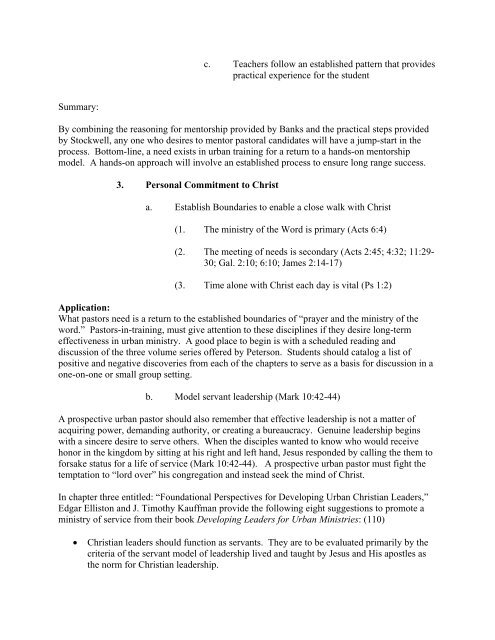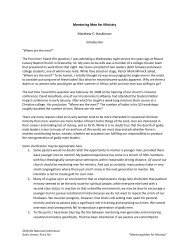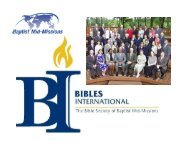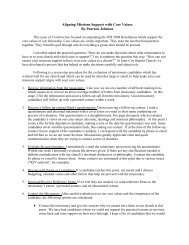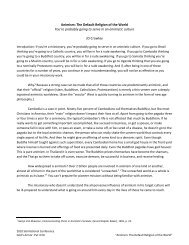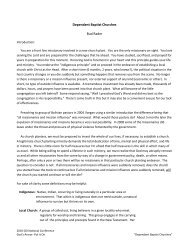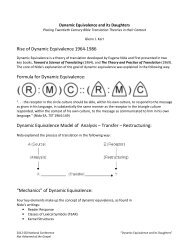Session 1: Why Urban Ministry - Missions Mandate
Session 1: Why Urban Ministry - Missions Mandate
Session 1: Why Urban Ministry - Missions Mandate
You also want an ePaper? Increase the reach of your titles
YUMPU automatically turns print PDFs into web optimized ePapers that Google loves.
Summary:<br />
c. Teachers follow an established pattern that provides<br />
practical experience for the student<br />
By combining the reasoning for mentorship provided by Banks and the practical steps provided<br />
by Stockwell, any one who desires to mentor pastoral candidates will have a jump-start in the<br />
process. Bottom-line, a need exists in urban training for a return to a hands-on mentorship<br />
model. A hands-on approach will involve an established process to ensure long range success.<br />
3. Personal Commitment to Christ<br />
a. Establish Boundaries to enable a close walk with Christ<br />
(1. The ministry of the Word is primary (Acts 6:4)<br />
(2. The meeting of needs is secondary (Acts 2:45; 4:32; 11:29-<br />
30; Gal. 2:10; 6:10; James 2:14-17)<br />
(3. Time alone with Christ each day is vital (Ps 1:2)<br />
Application:<br />
What pastors need is a return to the established boundaries of “prayer and the ministry of the<br />
word.” Pastors-in-training, must give attention to these disciplines if they desire long-term<br />
effectiveness in urban ministry. A good place to begin is with a scheduled reading and<br />
discussion of the three volume series offered by Peterson. Students should catalog a list of<br />
positive and negative discoveries from each of the chapters to serve as a basis for discussion in a<br />
one-on-one or small group setting.<br />
b. Model servant leadership (Mark 10:42-44)<br />
A prospective urban pastor should also remember that effective leadership is not a matter of<br />
acquiring power, demanding authority, or creating a bureaucracy. Genuine leadership begins<br />
with a sincere desire to serve others. When the disciples wanted to know who would receive<br />
honor in the kingdom by sitting at his right and left hand, Jesus responded by calling the them to<br />
forsake status for a life of service (Mark 10:42-44). A prospective urban pastor must fight the<br />
temptation to “lord over” his congregation and instead seek the mind of Christ.<br />
In chapter three entitled: “Foundational Perspectives for Developing <strong>Urban</strong> Christian Leaders,”<br />
Edgar Elliston and J. Timothy Kauffman provide the following eight suggestions to promote a<br />
ministry of service from their book Developing Leaders for <strong>Urban</strong> Ministries: (110)<br />
• Christian leaders should function as servants. They are to be evaluated primarily by the<br />
criteria of the servant model of leadership lived and taught by Jesus and His apostles as<br />
the norm for Christian leadership.


